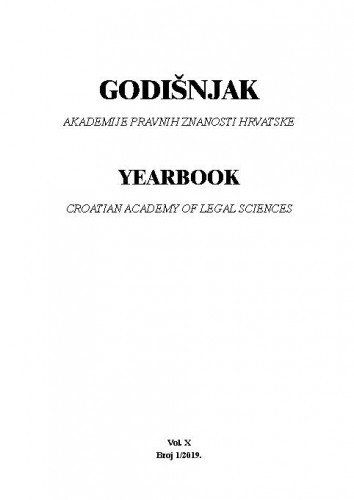Pravno uređenje imovinskih odnosa u obitelji znatno se razlikuje u pojedinačnim europskim pravnim sustavima. Prvi će dio rada stoga biti posvećen analizi imovinskih odnosa u braku, u izvanbračnim zajednicama te u životnim partnerstvima osoba istog spola u hrvatskome obiteljskom pravu s ciljem određivanja pravnog okvira. Nadalje, pokušat će se odgovoriti na pitanje jesu li na imovinskopravna rješenja djelovala određena poredbenopravna rješenja i/ili izvori soft lawa, poput Načela europskoga obiteljskog prava u području imovinskih odnosa bračnih drugova. U drugom će se dijelu rada nastojati razmotriti kako bi sekundarno pravo EU-a moglo utjecati na domaće obiteljsko pravo nakon što se u Republici Hrvatskoj budu primjenjivale Uredba Vijeća (EU) 2016/1103 o provedbi pojačane suradnje u području nadležnosti, mjerodavnog prava te priznavanja i izvršenja odluka u stvarima bračnoimovinskih režima i Uredba Vijeća (EU) 2016/1104 o provedbi pojačane suradnje u području nadležnosti, mjerodavnog prava te priznavanja i izvršenja odluka u stvarima imovinskih posljedica registriranih partnerstava. Na kraju, autorica će ponuditi završna razmatranja glede usporedbe između postojećih nacionalnih pravnih rješenja i europskih trendova u području imovinskih odnosa u obiteljskom pravu.; The legal regulation of patrimonial relations in the family differs from one European legal system to another. The first part of the paper will be dedicated to the analysis of the patrimonial relations in the marriage, in the de facto cohabitations and in the same-sex registered partnerships in the Croatian family law in order to define the legal framework. The paper will go on to deal with the question of whether the national family law has been influenced by some legal solutions from other legal systems or by sources of soft law such as the Principles of European Family Law regarding Property Relations between Spouses. The second part of the paper will deal with the possible impact of the EU secondary legislation on the national family law after the entry into force of the Council Regulation (EU) 2016/1103 of 24 June 2016 implementing enhanced cooperation in the area of jurisdiction, applicable law and the recognition and enforcement of decisions in matters of matrimonial property regimes and the Council Regulation (EU) 2016/1104 of 24 June 2016 implementing enhanced cooperation in the area of jurisdiction, applicable law and the recognition and enforcement of decisions in matters of the property consequences of registered partnerships. Finally, the author will offer some concluding remarks regarding the comparison between national legal solutions and the European trends in the field of property relations in family law.
Sažetak

 Godišnjak Akademije pravnih znanosti Hrvatske : Yearbook Croatian Academy of Legal Sciences : 10,1(2019) / glavna urednica, editor-in-chief Irena Majstorović.
Godišnjak Akademije pravnih znanosti Hrvatske : Yearbook Croatian Academy of Legal Sciences : 10,1(2019) / glavna urednica, editor-in-chief Irena Majstorović.